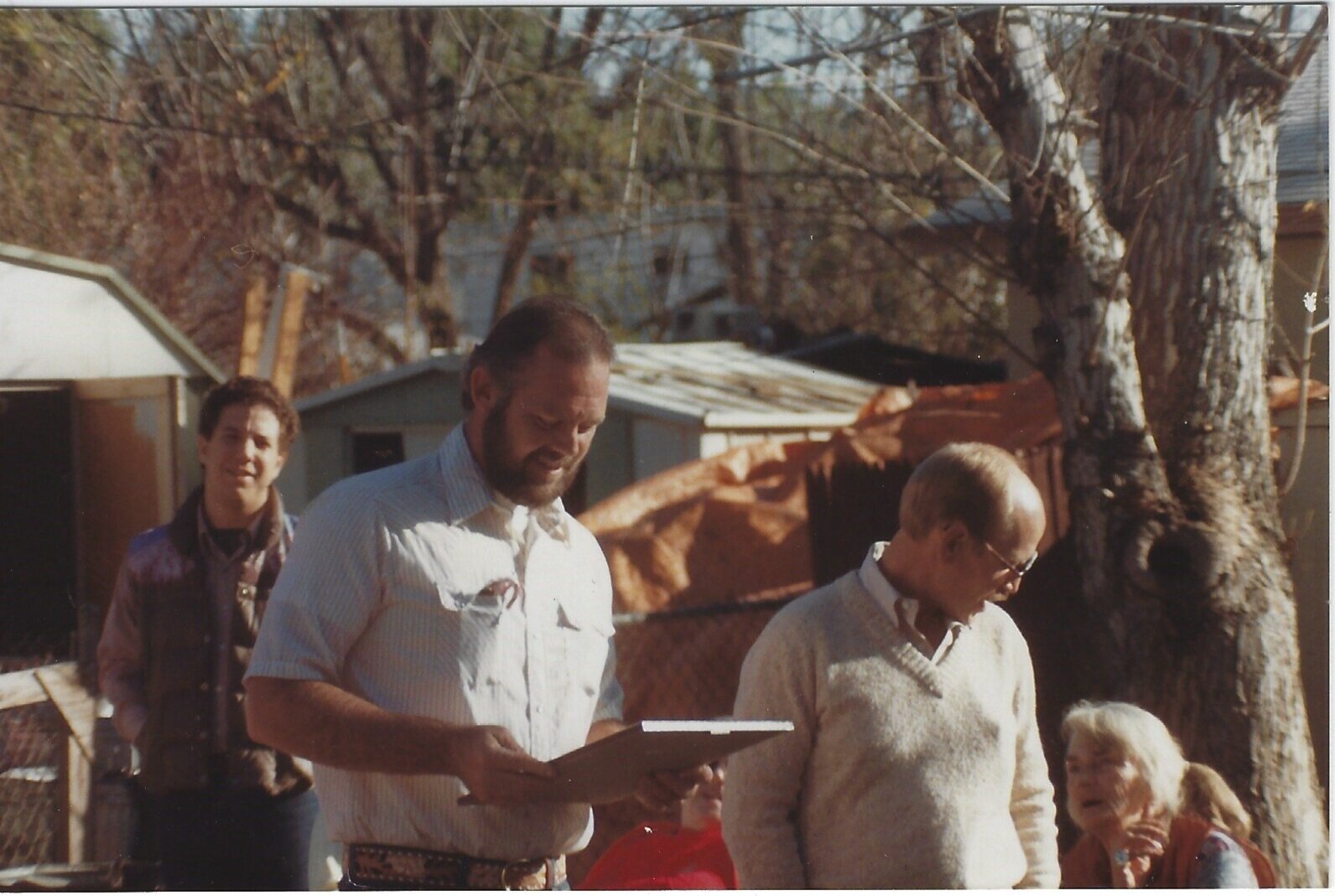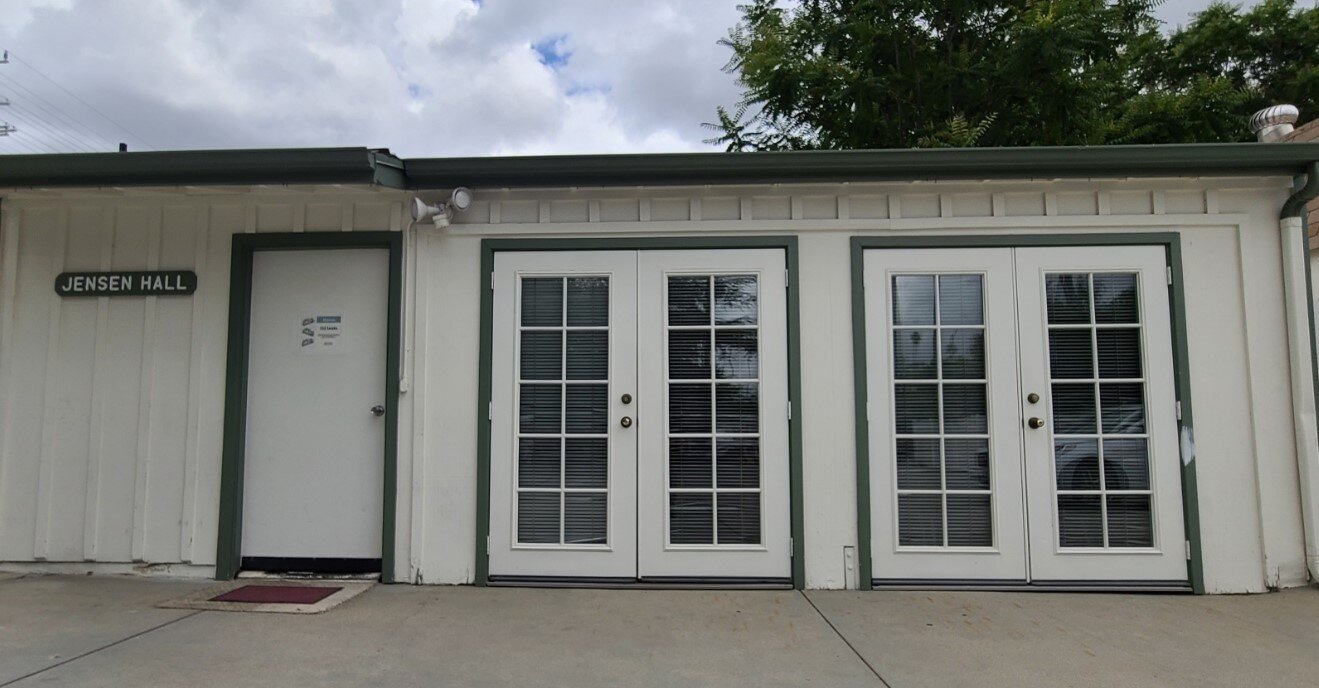
Our History
30 Years ago
10 years ago
Today
Norm Church
Original Board member
Don Klinkhammer
Creator of Serra Retreat.
Dan, Bill and Mitch
Early supporters / Board members
Bud Hayes
House Manager
Jensen Hall
The Cabrito Foundation began with the yearning for a Recovery House in the Central and West San Fernando Valley. After two years of hesitation, one of the founders sought out three or four interested members of Alcoholics Anonymous. They located a dilapidated house in an industrial weed patch on Cabrito St. in Van Nuys, CA that had been condemned and ordered to be demolished by the Fire Department.
They then contacted the owners and made arrangements to renovate and maintain the property on a free basis for a period of time to justify the tremendous amount of work to be done to the property.
They then called a meeting of some thirty other recovered alcoholics from which came twenty of the incorporators. Five were later added to qualify under the laws for nonprofit organizations. Of this group, (without one cent other than their own contributions), nine were selected to; found, organize, build, incorporate, finance, furnish and populate the House.
There were no windows, wiring, plumbing or other necessities for human habitation. In addition to the house being derelict, the deal required the clearing of a 300-foot lot in back that had been overgrown and used as a dump for years.
Some of that smaller group were able to put in all of their spare time. The house and lot were cleared by many truckloads of; weeds, garbage and rubble. Walls were cleaned, scraped and painted. Floors were cleaned and waxed. Window frames and panes were installed. Doors were hung and locks were added. At the same time this small group organized a rummage sale which produced around one thousand dollars and furnished the House. Government money was offered but courteously refused.
SELF-HELP had become the overlying purpose of the house! Alcoholics know that their chance to survive depends upon their willingness to take a spiritual direction and help themselves. For years, they had done nothing but take from others; financially, socially emotionally and physically.
Paint, equipment, labor, furnishings and sometimes money began to seep in from other alcoholics. Still, the handful of founders were drained of time, labor and money. At no time though, did they doubt the success of the project.
One idea that possessed them was that recovering alcoholics released from State and private agencies, or straight off the street, would not have to live under clinical conditions as they adjusted; and that their residence should be cheerful and pleasant. One of the most pressing problems of the hard core alcoholic is his lack of a beginning point that stimulates his buried desire to live normally.
After several months of work, encouragement and success, the owners of the property notified them that after being vacant five years, they had found a builder of industrial properties who wanted the location. With the prearranged 90-day notice, the group turned itself to the task of relocation.
Attorneys had completed the bylaws and a meeting of the incorporators and interested alcoholics was called to elect a permanent Board of Trustees of twenty five members and a new set of Corporate Officers. An Executive Committee of nine, including the officers, was an amalgamation of the founders group with a dynamic and enthusiastic new group. This combination of fresh vitality and dedication was gravely needed.
All of the time, even before the renovations began, the House had started bedding men with no other place to go. As the men came, so came furnishings. Meals were prepared, jobs were located and AA meetings were held.
With the beginning of the second organizational phase, the House had already aided many men. Welfare checks were refused as payment. Men drawing unemployment or other benefits were told they must proceed to re-enter society on a self-supporting basis immediately, if they were to stay at the House. No one was turned away because of lack of money, race or extraneous reasons. The only criteria was a desire to stay sober by not drinking and willingness to practice the Program of Alcoholics Anonymous.
It must be pointed out that AA allies itself with no other organization, but the organization may base its precepts on those of AA without binding either to the other. In the opinion of the founders and their successors, this necessarily involves the willingness to be self-supporting and to become productive members of society.
The revitalized organization had great difficulties in finding a new location, with time running out. On two occasions they found perfect locations beyond their wildest expectations, only to have them crumble at the last moment. On one of these occasions the leases had been signed and deposit paid, only to find the purported lessors were without the authority they claimed. Again, it can be honestly stated that although greatly disappointed, at no time was there doubt that the project would prevail.
In December of 1970, six months after the very nucleus of the Foundation was created a site was located accidentally. It was not up for lease in an active sense, but was vacant. It is here, on the corner of Saticoy St. and Remmet Ave. that the current Cabrito House is located. The house is a unique two story barn house with high beamed ceilings. The beautiful grounds include a large swimming pool, huge shade trees and a circular drive. It has two large dormitories and other private room’s for the house managers. There is a dining room, bathrooms, and a spacious living room with a huge semi-cone shaped fireplace that is bricked to the ceiling. There is also a very large, well equipped kitchen.
Since the opening of the new location, much time and effort has been put into conversion, decoration and improvement of the premises. All money raised, by small contributions and a few large donations made this House able to proceed with its main purpose for existing, providing a pleasant, positive and safe location for men in early recovery.
Almost one hundred men had passed through the doors of the Foundation in its first year. A recent study shows that of these 100 men, twenty-five percent are known to be sober, twenty-five percent left sober but their status is unknown at this time and fifty percent have drank since leaving. Of that fifty percent, many are known to be sober today. Any authority on Alcoholism will immediately admit that these figures are unequaled anywhere outside of Alcoholics Anonymous.
In March 1971, Pat Boone, who was interested in the Foundation, hosted a complete show with his family and other celebrities in the entertainment industry. The money raised by that highly successful evening, along with the funds raised by the Founders' Day Banquet went towards the purchase of the house on Remmet Ave.
The Foundation intends to continue these semi-annual events, using the funds to aid other communities of Recovered Alcoholics to open similar Residences in every area. The SELF-HELP theme will be the Order of the Day in all undertakings. The willingness to help one-self through a spiritual program of recovery is the only known mass solution to the monumental social problems of Alcoholism.
The Foundation realizes that its dedication to AA, without affiliation, has been the moving factor in its success. The House is the Recovered Alcoholic's way of practicing the Twelfth Step of AA, which is "Having had a spiritual awakening as the result of these steps, we tried to carry this message to alcoholics, and to practice these principles in all our affairs." The Foundation offers a beginning point, which is one of the greatest needs of the alcoholic stuck in an unreal world without a beginning or end. This beginning is partly the gaining of self-respect, confidence and hope.








